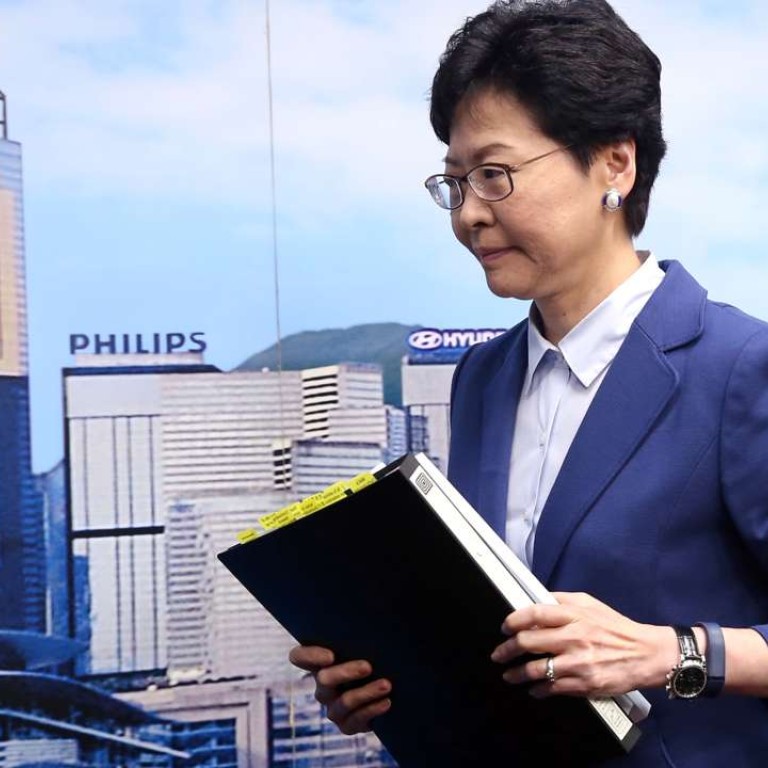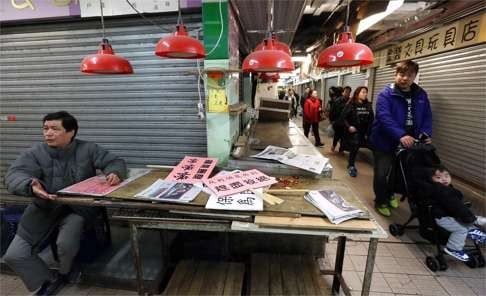
Why Carrie Lam doesn’t have what it takes to be Hong Kong’s next chief executive
Albert Cheng says the chief secretary, who may be preparing to run for the city’s top job, fails the integrity test, particularly in the lead-in-water scandal
Chief Secretary Carrie Lam Cheng Yuet-ngor’s ambition to be the next chief executive is becoming more conspicuous by the day. Lam has jumped on every opportunity recently to bolster her chances for the election next March.
Soon after National People’s Congress chairman Zhang Dejiang’s (張德江) visit to Hong Kong, Lam invited pro-establishment councillors to dinner. The gathering was said to be tantamount to a preview of her election manifesto.

Hong Kong chief secretary Carrie Lam says she won’t become another Anson Chan
The chief secretary reportedly listed three priorities to tackle – the MTR’s unpopular fare hikes, The Link Reit’s dominance of shopping malls and car parks in public housing estates, and the hedging arrangement between the Mandatory Provident Fund and employers’ severance payments. She also highlighted her concerns about inadequacies in retirement protection and tourist facilities.
However, her proposed solutions to these chronic problems are, to put it politely, feeble.
Her proposed solutions to these chronic problems are, to put it politely, feeble
Take The Link Reit. There has been a public outcry against the company’s business strategy to maximise profits at the expense of community interests. Lam thinks she has two trump cards up her sleeve. First, the government can build new markets adjacent to the Link amenities. Second, it can provide shuttle services to get consumers to markets run by the Food and Environmental Hygiene Department.
The Link Reit now owns some 80 fresh-food markets. How will the government find the space to build similar facilities to compete? It can hardly identify enough sites to keep up with its own public housing targets. Not to mention that such a move would be an embarrassing U-turn for its policy to privatise the markets for more efficient management.
Even if alternative venues were found and shuttles were run, the move would only allow the Link to escape its responsibility towards serving neighbourhoods.

Link Reit to ‘slow down’ wet market policy
The Housing Authority is legally bound to provide reasonable market and car park services to its public housing tenants. With the sale of the facilities, that obligation was supposed to have passed to the Link. Many people believe the company has failed to live up to this stipulation.
The government, specifically Lam, should ensure this commitment is upheld, by taking legal action against the Link, if necessary.
Lam’s actions in whitewashing the lead-in-water scandal also raise questions about her integrity and ability. The commission of inquiry’s report noted that, during the scandal, stakeholders transferred the duty of supervision to others and pointed to a “collective failure on the part of all stakeholders”. The panel concluded that both the Water Services Department and the Housing Authority were at fault.
Solder and collective failure to blame for Hong Kong tainted water scandal, report finds
As a result, Secretary for Development Paul Chan Mo-po, chairman of the Housing Authority and Secretary for Transport and Housing Anthony Cheung Bing-leung, director of water supplies Enoch Lam Tin-sing and director of housing Stanley Ying Yiu-hong apologised at a joint press conference. Lam was the only one there not to offer an apology, insisting that, “even though the commission’s hearings reflected an inadequate awareness by government departments and flaws in the monitoring system, it did not necessarily equate to particular officials not following laws or neglecting duties – because of that, they do not have to bear personal responsibility.”
Lam’s logic boils down to: a large number of officials were at fault, so no one should be held accountable. As head of the 170,000-strong civil service, Lam should have the integrity to take the blame for the health hazard. Right now, it appears she simply doesn’t have the moral fibre that Hong Kong people desire in their chief executive.
Albert Cheng King-hon is a political commentator. [email protected]

